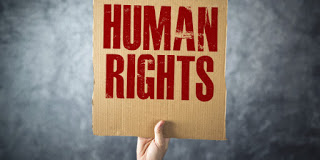NGOs asked to remove ‘Human Rights’ or ‘Corruption’ from registered name

Maharashtra State Charity Commissioner Shiv kumar
Dige has issued an order directing around
400 NGOs and trusts registered in the state to remove the words
“corruption” and “human rights” from their names or risk suspension under the
Maharashtra Public Trusts Act 1950.
Dige has issued an order directing around
400 NGOs and trusts registered in the state to remove the words
“corruption” and “human rights” from their names or risk suspension under the
Maharashtra Public Trusts Act 1950.
Earlier
the charity commissioner’s office in Pune had taken similar action against 16
NGOs with the word “corruption” in their names, including Anna Hazare’s Bhrashtachar Virodhi Jan Andolan, which
has been suspended. The NGO’s case to regain its registration is pending in
court.
the charity commissioner’s office in Pune had taken similar action against 16
NGOs with the word “corruption” in their names, including Anna Hazare’s Bhrashtachar Virodhi Jan Andolan, which
has been suspended. The NGO’s case to regain its registration is pending in
court.
According
to press reports, the State Charity Commissioner is of the view that the
government has the machinery to prevent corruption and protect human rights. “There
were complaints that a few organisations were misusing these words and cheating
people”, Mr. Dige is reported to have told the press. He also told the press:
“eradicating corruption is the government’s duty and the government authorities
have those rights. However, a few organisations are misusing the word
‘corruption’ and targeting an individual or some officials. But, they do not
have the right to do this. This is misleading for the common people. Also,
according to a high court judgment, the eradication of corruption cannot be the
social objective of an organisation”.
to press reports, the State Charity Commissioner is of the view that the
government has the machinery to prevent corruption and protect human rights. “There
were complaints that a few organisations were misusing these words and cheating
people”, Mr. Dige is reported to have told the press. He also told the press:
“eradicating corruption is the government’s duty and the government authorities
have those rights. However, a few organisations are misusing the word
‘corruption’ and targeting an individual or some officials. But, they do not
have the right to do this. This is misleading for the common people. Also,
according to a high court judgment, the eradication of corruption cannot be the
social objective of an organisation”.
Objecting to the use of the word “human rights” by organisations, Mr. Dige reportedly
said the state Human Rights Commission can take care of issues of
violation. “Many organisations use the words ‘human rights’ in their names. But,
the state Human Rights Commission has
written to us to take action against these organisations. Only government authorities can deal with
human rights violations, and not private institutions. Therefore, I have
issued the order to remove the words from these organizations’ names,” Mr. Dige
told the press.
According
to press reports, the charity commissioner’s office will issue notices to
organisations to remove the words from their names. “If they do not follow the order, we will have to suspend the trustees
of the organisation,” the Charity Commissioner has said.
to press reports, the charity commissioner’s office will issue notices to
organisations to remove the words from their names. “If they do not follow the order, we will have to suspend the trustees
of the organisation,” the Charity Commissioner has said.
Article
19(1) (c) of the Constitution of India guarantees to all its citizens the right
“to form associations, or unions or Co- Operative Societies.” Under clause (4)
of the Article 19, however, the State may by law impose reasonable restrictions
on this right in the interest of public order or morality or the sovereignty
and integrity of India.
19(1) (c) of the Constitution of India guarantees to all its citizens the right
“to form associations, or unions or Co- Operative Societies.” Under clause (4)
of the Article 19, however, the State may by law impose reasonable restrictions
on this right in the interest of public order or morality or the sovereignty
and integrity of India.
The
right to form association includes the right to form companies, societies, trusts,
partnerships, trade union and political parties. The right guaranteed is not
merely the right to form association but also to continue with the association
as such. The freedom to form association implies also the freedom to form or
not to form, to join or not to join, an association or union.
right to form association includes the right to form companies, societies, trusts,
partnerships, trade union and political parties. The right guaranteed is not
merely the right to form association but also to continue with the association
as such. The freedom to form association implies also the freedom to form or
not to form, to join or not to join, an association or union.
Several
NGOs have objected to the State’s move, arguing that the charity commissioner’s
office should have raised objections while registering their organisations. All
India Anti-Corruption Committee which has two million members and has been
working against corruption for 20 years has said that it will challenge the
order in court!
NGOs have objected to the State’s move, arguing that the charity commissioner’s
office should have raised objections while registering their organisations. All
India Anti-Corruption Committee which has two million members and has been
working against corruption for 20 years has said that it will challenge the
order in court!

